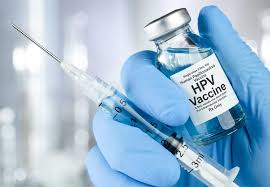Ghana Introduces Vaccine to Combat Cervical Cancer
Posted 02:07 PM, Saturday August 02, 2025 2 min(s) read

Photo by: Jedidah Ephraim
KUMASI, Aug 2 (AGCNewsNet) — Ghana has officially joined over 140 countries, including 28 in the WHO African Region, in integrating the Human Papillomavirus (HPV) vaccine into its national immunisation programme in a major effort to curb cervical cancer and protect adolescent girls aged 9 to 14.
The move, which aligns with the global strategy to eliminate cervical cancer, was announced at a stakeholder engagement event held Wednesday in Kumasi, Ashanti Region. The session brought together regional education directors and School Health Education Programme (SHEP) coordinators to raise awareness about the vaccine's rollout and its importance in safeguarding future generations of Ghanaian women.
“Delivering the HPV vaccine through the national immunisation programme assures equitable and sustainable access for all girls aged 9–14 irrespective of their sociodemographic profile,” said Dr Fiona Braka, WHO Representative in Ghana. She emphasized that in low-resource countries like Ghana, where cervical cancer screening and treatment services are limited, HPV vaccination is a critical frontline defence.
Cervical cancer is the fourth most common cancer among women globally, with more than 600,000 cases recorded annually. Sub-Saharan Africa bears a disproportionate burden of the disease, accounting for the majority of late-stage diagnoses and related deaths due to inadequate screening infrastructure.
The World Health Organisation’s Sustainable Development Goal (SDG) 3.4 aims to reduce premature mortality from non-communicable diseases, including cervical cancer, by one-third by 2030. Ghana’s inclusion of the HPV vaccine is seen as a major step toward this target.
Ashanti Regional Health Director Dr Fred Adomako-Boateng affirmed the Ghana Health Service’s plan to vaccinate all girls within the target age group. He urged school authorities and health officials to become advocates for the campaign. “This will facilitate the vaccination process within schools and you [teachers] will serve as champions to dispel myths and fears around the vaccine,” he said.
Echoing similar sentiments, Dr William Kwame Appiah Amankrah, Ashanti Regional Director of the Ghana Education Service, called the initiative more than a public health measure — describing it as an investment in the country’s human capital.
“Protecting the health of girls means empowering women tomorrow to contribute to the growth and development of the nation,” Amankrah stated.
Ghana’s School Health Programme, which already implements initiatives like Girls’ Iron-Folate Supplementation and treatments for neglected tropical diseases, is expected to serve as a key vehicle for the HPV vaccine rollout.
Stay connected with AGC NewsNet for the latest news from Africa.